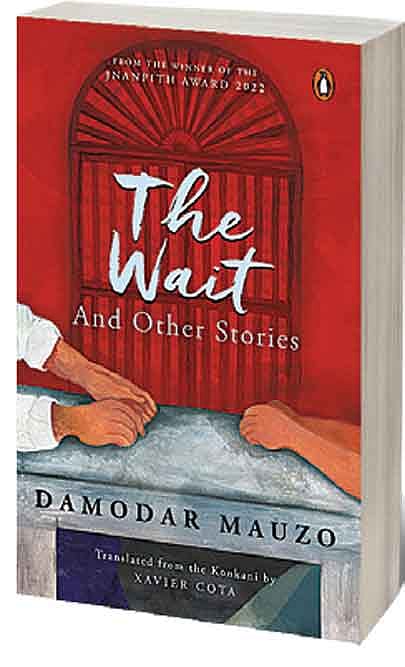Goa of the Mind

IN THE TITULAR story ‘The Wait’ in the new short story collection by Damodar Mauzo, Viraj is an unintentional voyeur to the lovemaking between a young couple. A goon beats up the man, and drags the woman by hair. Viraj’s throat runs dry, his legs fold under him. He is overcome with guilt at not helping them, but consoles himself—“If he [the man] had a better physique or a suitable house, this would not have happened.”
In ‘I Was Waiting for You’, Mymoon meets Mini whom he had deserted three years before. Mini was raped and wanted to fight for justice but Mymoon couldn’t fathom why she “wallows in the insult to her honour” even though he was ready to accept her. Like Viraj and Mymoon, many characters in Mauzo’s 14 stories are observers who justify their inaction. They are riddled by guilt, nostalgia, lust, cowardice and greed.
Some have the gift of the gab. In my favourite story, ‘Yasin, Austin, Yatin’, a shrewd cab driver fashions his name and small talk according to the passenger. He would “Khuda hafiz” a Muslim, vilify Portuguese invaders to a Gujrati Hindu, and praise the peace-loving Portuguese to a Christian foreigner. He wins their trust with “liberally embroidered” stories with communal remarks, Hindutva ideologies, and skewed history, to earn more tips.
Religion and intolerance are prominent themes. The Christian girl in ‘Burger’ is terrified that she defiled her Hindu friend by accidentally sharing a beef burger. She is pained by nightmares and her mother’s advice to avoid the friend. The ending is a slap on the face, reminding the reader that religion, food, and eating habits are deeply personal and not homogenous.
Openomics 2026: Continuity and Conviction
06 Feb 2026 - Vol 04 | Issue 57
The performance state at its peak
In ‘The Coward’, a proud tiatrist Cecil de Dongorim asks his son Brendan to stay away from his lower caste schoolmate. Brendan, however, is in awe of Bindhaas who can whirl snakes over his head like a merry-go-round, catch frogs and knock down two mangoes with one stone. Mauzo prises open prejudice and power dynamics through Cecil who repeatedly calls Brendan a coward to humiliate him, and the school principal Father Emiliano who does not believe Bindhaas (“Who will believe the word of that low-caste Shudra boy?” Cecil asks) until Brendan’s mother corroborates the story. The soldiers at a war, under a Colonel who doesn’t encourage sentimentality, also experience casteism (‘As the Ice Melts’).
Mauzo won the Jnanpith award in 2021, becoming the second Konkani writer to win India’s highest literary prize. His stories overflow with the problems of the common man. In the harsh real estate scene in Goa, love isn’t enough, money is sparse, but a two-bedroom flat is essential when parents stay with the newlywed couple. Forced marriage, moral policing, unrequited love, and corruption torment the characters. India’s obsession with beauty has not been spared—In ‘The Aesthete’, Vishwesh who “made it a rule that every aspect of his life should be beautiful” is restless because of a tiny patch on his wife’s ageing face.
While most stories are thought provoking, some fall short. But Mauzo’s keen and astute depiction of people, deftly translated by Xavier Cota, make the collection incredibly satisfying. The characters are all too human—naïve, indifferent, cunning, politically incorrect, easily swayed by propaganda—and the situations they find themselves in are as real as people seen in the newspaper. They are immigrants, lovers, office goers, activists, tiatr artists and children.
In the last story ‘It’s Not My Business’, we meet Babgo spinning yarns about the 15 lakhs promised by the government, a direct nod to a particular Lok Sabha election campaign in 2014. Babgo doesn’t take a side even in local disputes, so his day “always goes well”. He is tempted by money, powerful friends, and beer to look the other way when a Muslim animal-lover Ghani chacha is charged with a case pertaining an injured cow. Mauzo seems to ask us, “Is it your business?”

